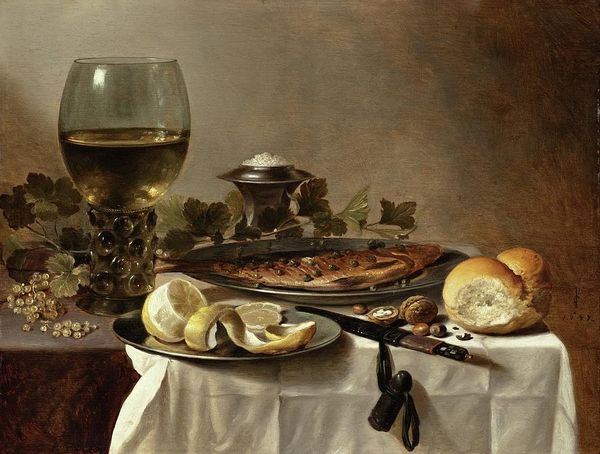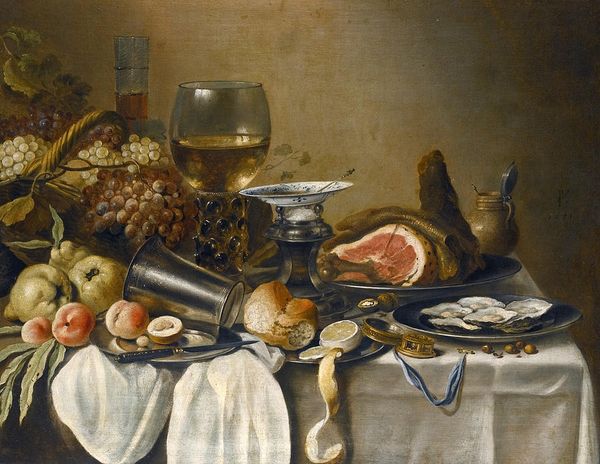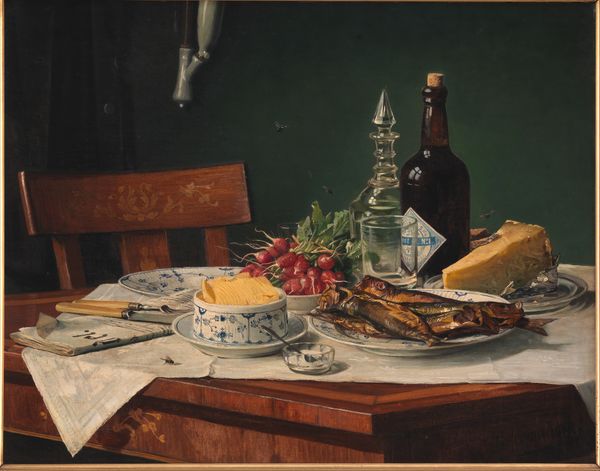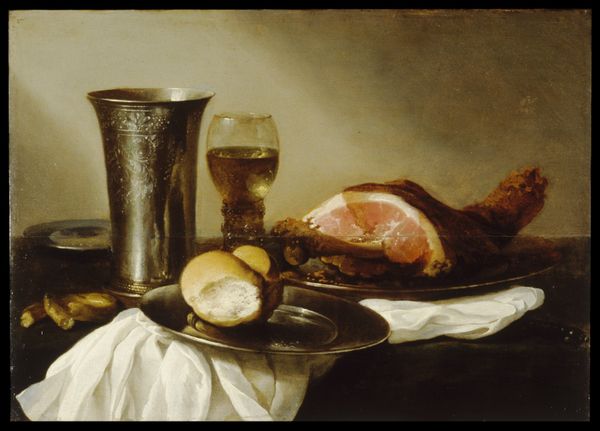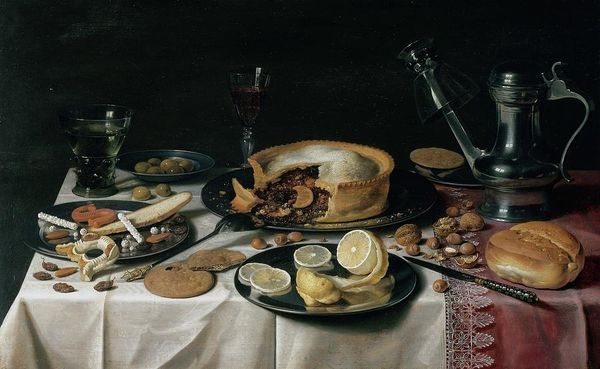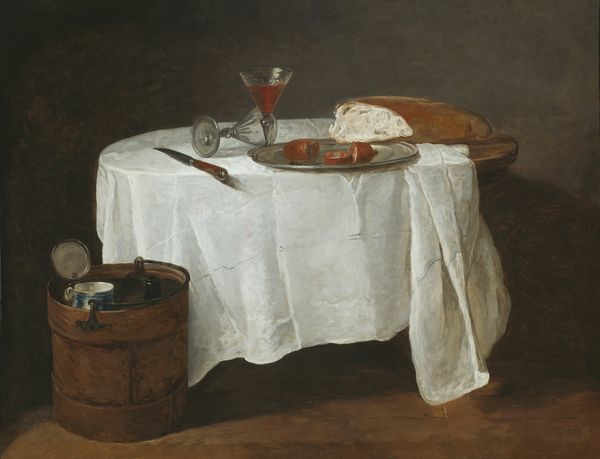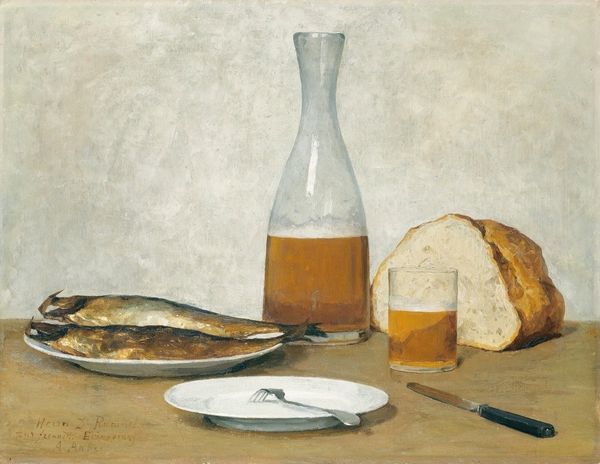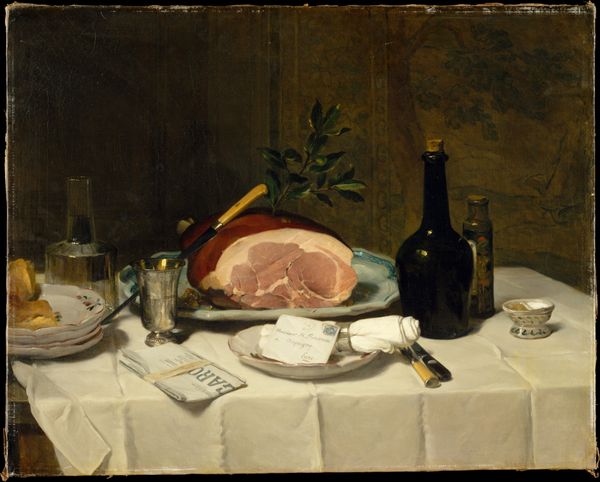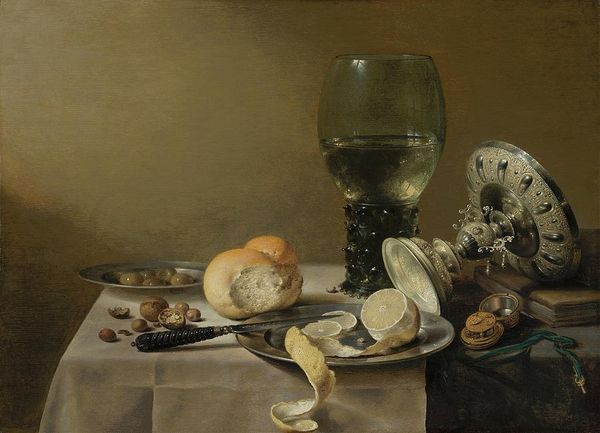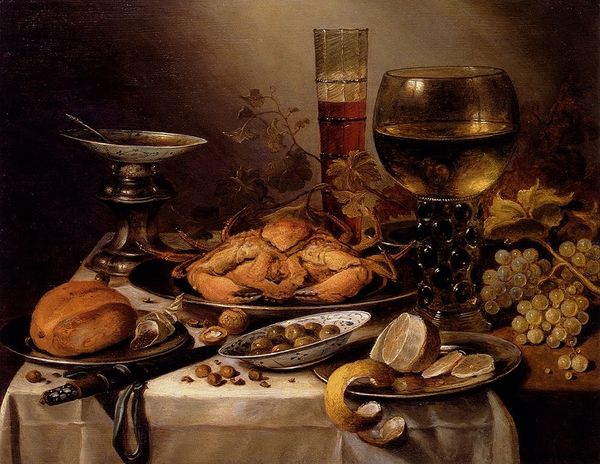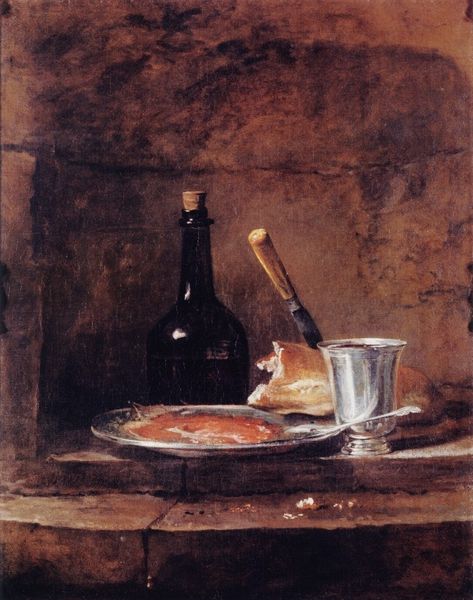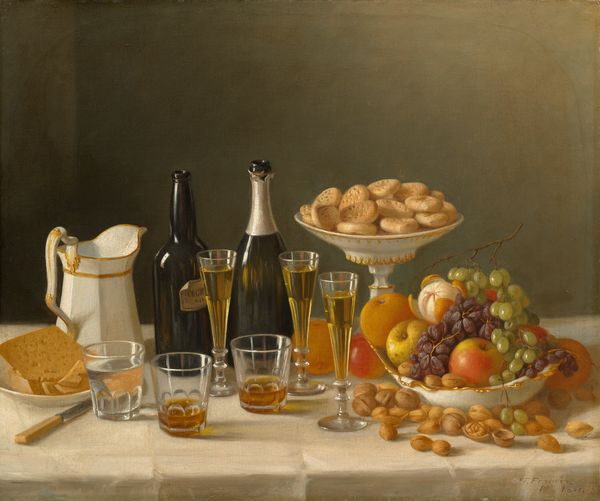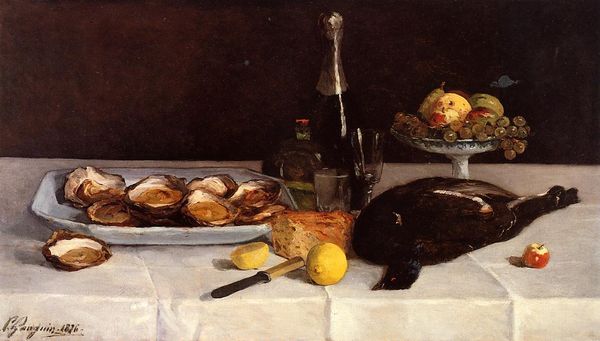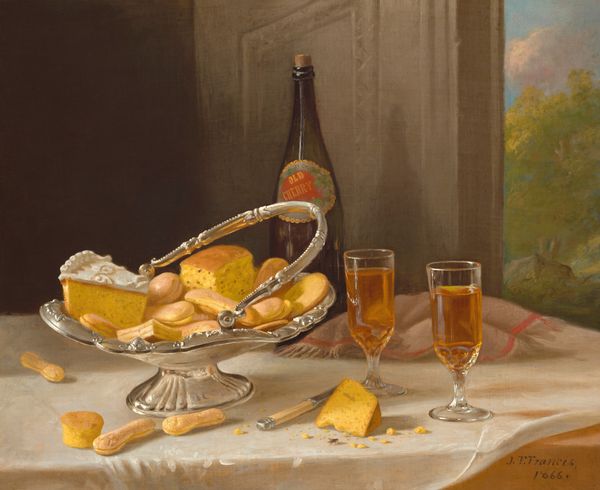
oil-paint
#
still-life
#
gouache
#
food
#
narrative-art
#
oil-paint
#
oil painting
#
food art
#
genre-painting
#
realism
Copyright: Public domain
Albrecht Anker painted ‘Still Life: Excess’ in Switzerland during an era of rapid industrialization and shifting social values. The painting presents a table laden with food and drink: a large ham, bread, wine, and beer, accompanied by a cigar, a matchbox, and dirty dishes. Its title suggests the painting is a commentary on the immoderate lifestyle of the upper class. The excess may seem benign at first glance, but in a society marked by growing disparities in wealth, it takes on a more critical dimension. Anker, celebrated for his depictions of rural life and the everyday, turns here to a scene of bourgeois indulgence. His choice of subject matter reflects a broader trend in 19th-century art, where artists engaged with the social realities of their time. By studying Anker's painting in the context of Swiss social history, consulting archival records, and reading contemporary accounts, we can gain insights into the complex relationship between art, society, and the politics of representation.
Comments
No comments
Be the first to comment and join the conversation on the ultimate creative platform.
